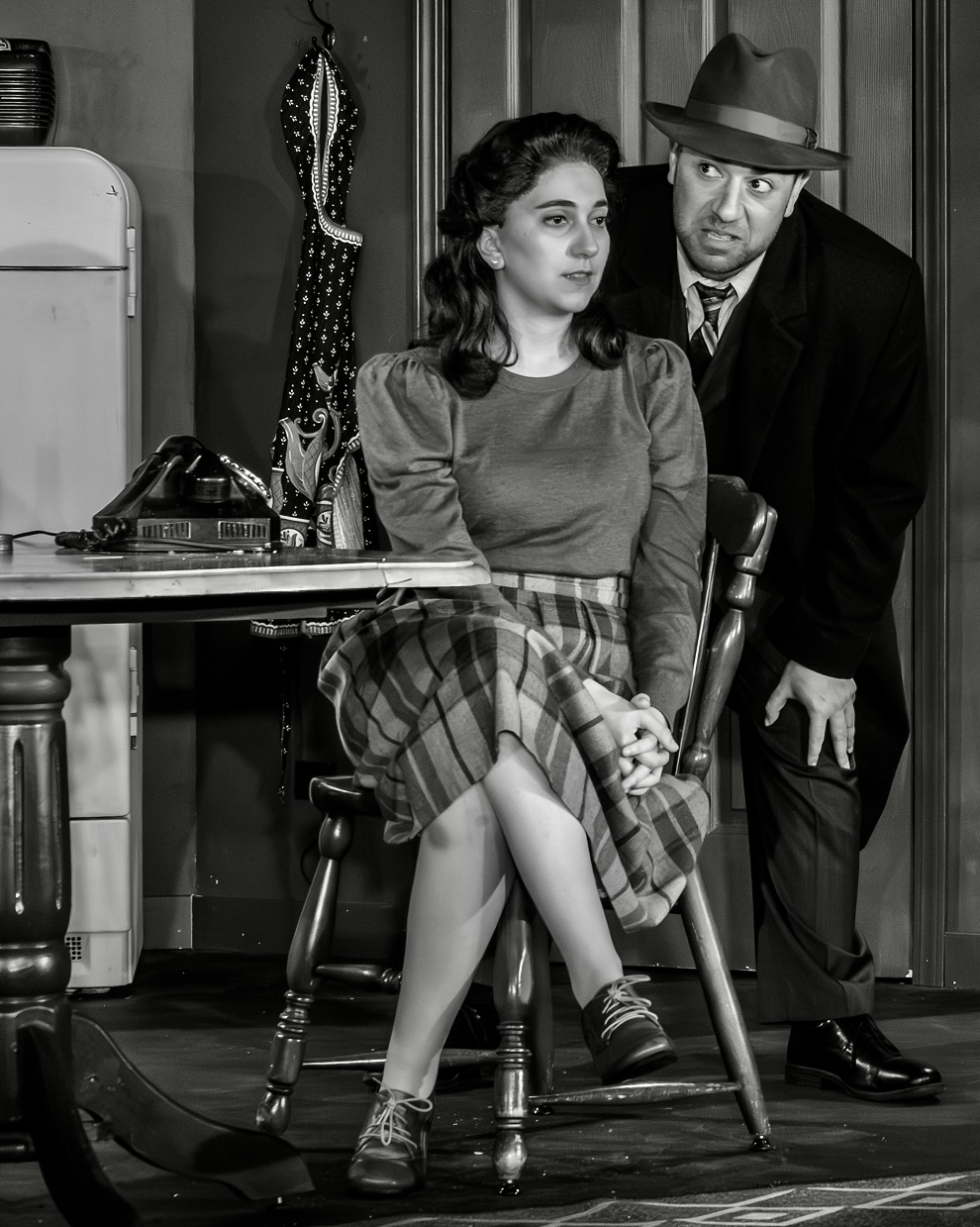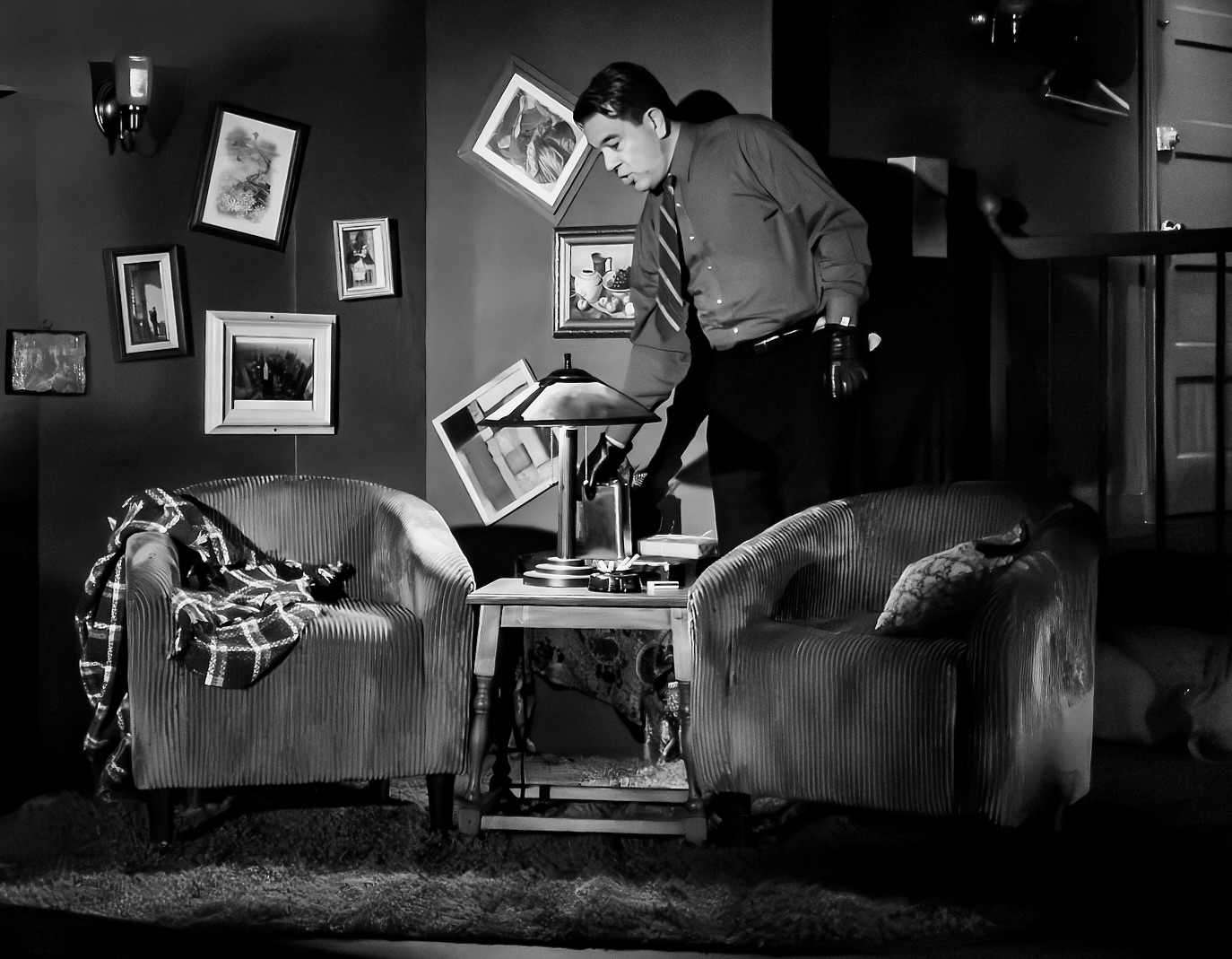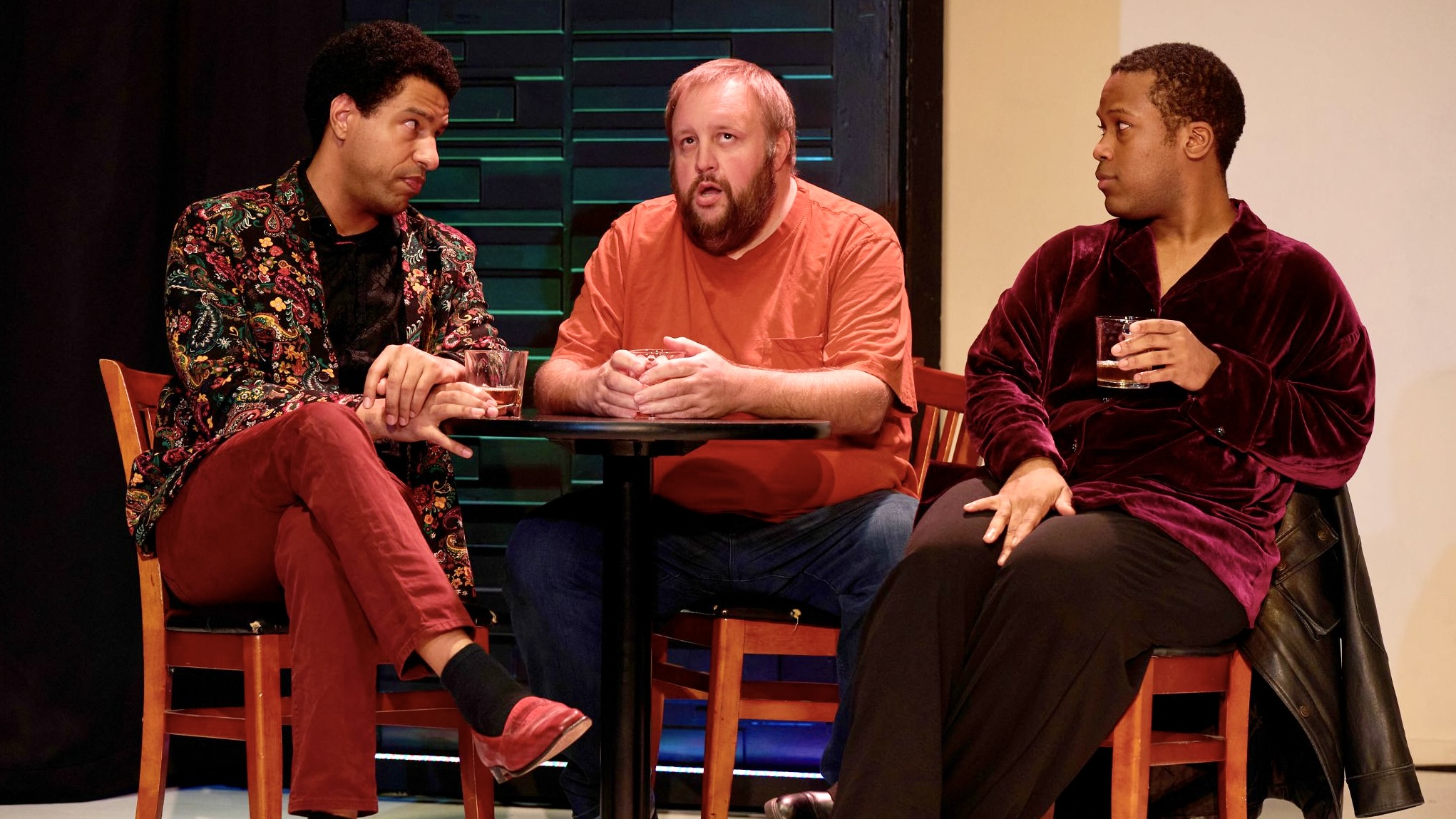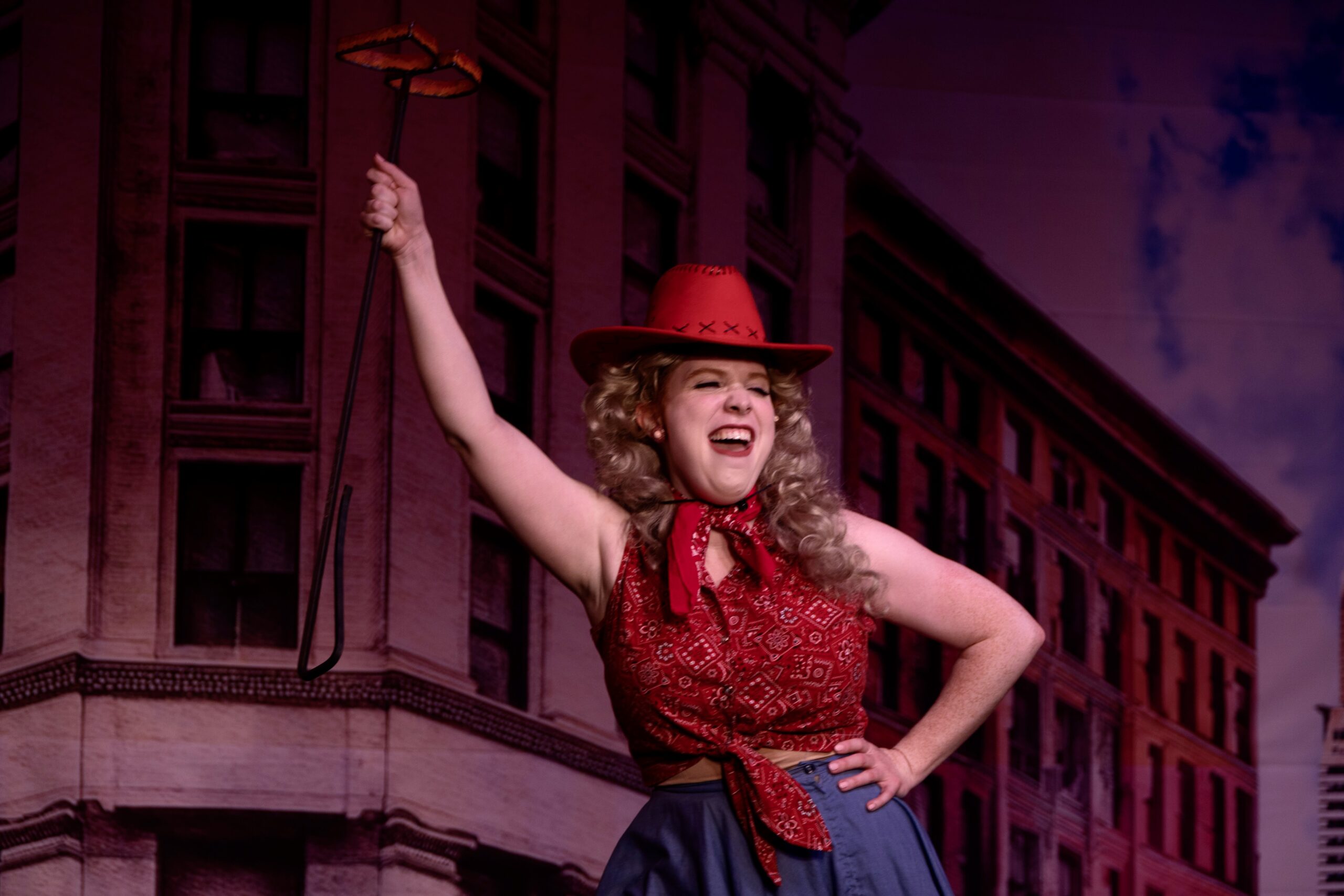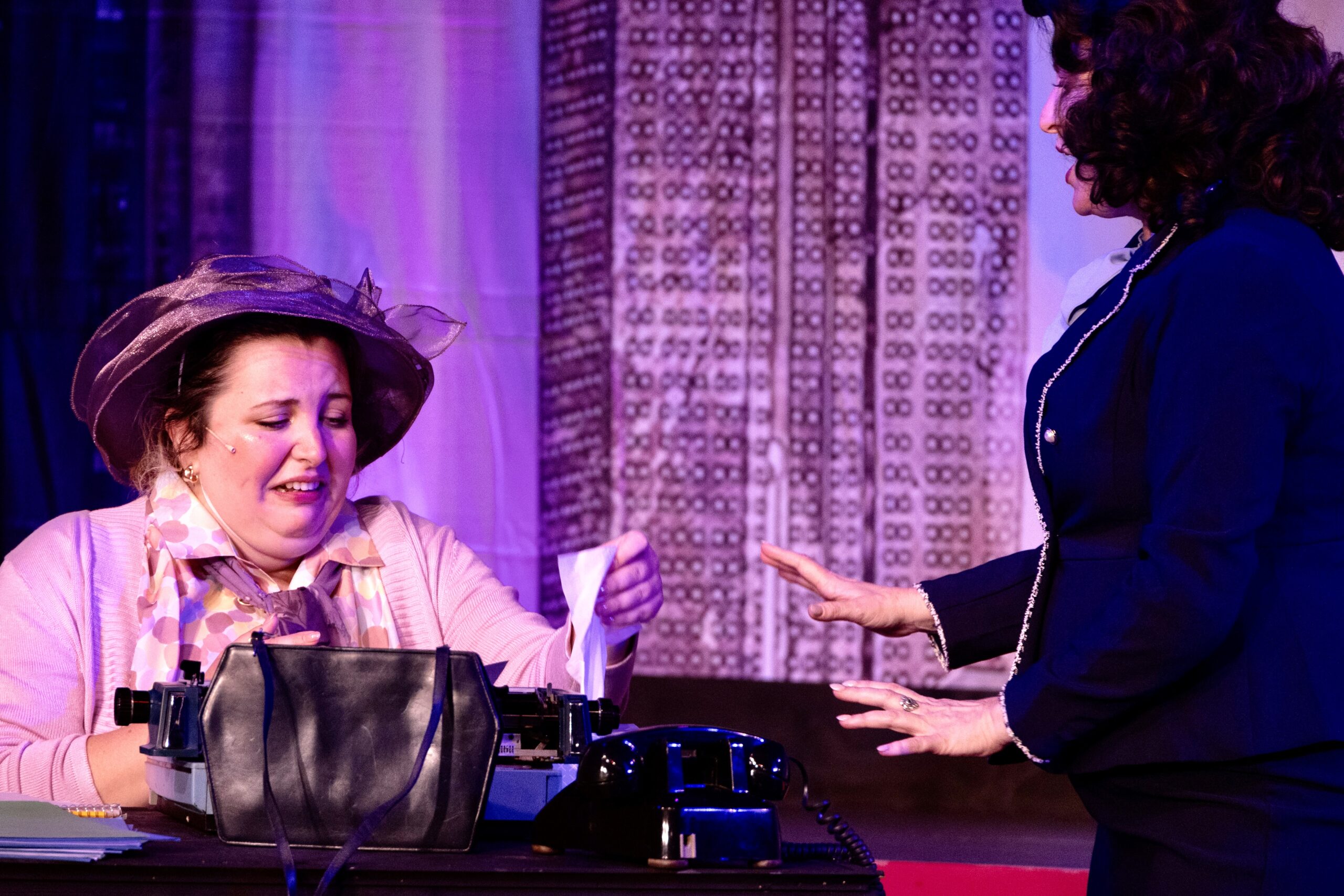
Zev Rattet of Marin County shares a hug with Korean actress and influencer IU during a backstage visit on her “2024 IU Hereh World Tour” stop in Oakland, July 30, 2024. The 77-year-old Rattet is a K-drama superfan who earned the nickname “Grandpa Uaena” for his fixation with IU and her talent, and his story has been amplified on Korean media. (Framegrab from video via Zev Does KDrama/YouTube)
ZEV RATTET is a 77-year-old Marin County guy so passionate about K-dramasthat he’s seen 15,000 hours of that voguish Korean genre, a variant of U.S. TV’s limited series.
Watching has earned him, in addition to more than occasional bleary eyes, a big hug from IU, a 32-year-old K-pop queen with 35 million Instagram followers, and a free trip to Seoul, the 9-million-person capital of South Korea.
Zev Rattet in a partial framegrab from video talks about his favorite K-dramas of 2025. At 77, the Marin County retiree runs his own YouTube channel dedicated to Korean television dramas. (Zev Does KDrama/YouTube)
The white-haired Rattet, who cherishes the slightly reverent title IU’s official fan club bestowed on him, “Uaena Grandpa,” has in effect become a mascot whose fixation with the singer-actress and her talent has been retold and retold on Korean media. He impishly explains that Bernadette, his French wife of 43 years, “banned” photos of her from the main floor of their Fairfax home. “She thinks I’m going to run away with IU, but I just think of her as a granddaughter.
Uaena, the name of IU’s official fancafé, basically translates as “you love me,” and IU, singer-actor Lee Ji-eun’s stage name, means “I and you,” which symbolizes the closeness she wants to create with her audiences.
Rattet, a computer programmer who retired in 2018, a year after he started becoming a devotee of K-drama, has turned into a non-stop storyteller — charming, breezy, light-hearted. Some of his brief monologues and videos meander playfully, filled with not only run-on sentences but run-on paragraphs.
“I noticed IU a year and a half into watching, in a K-drama called ‘Hotel del Luna,’” he begins an interview with Local News Matters. “She was the star. I fell in love with her character, so I started looking for dramas she was in. In one, ‘You Are the Best,’ in episode 36 of a 56-hour drama, she sings toward the end of the story. I loved her music.”

Because of that, he searched out other K-dramas with her singing and soon became the oldest fanboy in Uaena. Those actions eventually brought him Korean celebrity — along with his YouTube channel, Zev Does Kdrama, which features videos of “the hug,” of him gushing about IU and her work, of scenes from K-drama, of him being interviewed, and of him cooking Korean dishes — plus a shot of the back of a hoodie that reads “I love IU … and my wife.”
Meeting his idol
After Rattet started posting “something every day, to keep IU in everybody’s consciousness,” her fans and staff kept telling her to check him out. She made contact, inviting him to sit way up front when her tour took her to Oakland. “She sent me an invite online,” he relates. “I dressed the same way I was dressed when she ‘discovered me.’ All through the concert, people waved at me because they recognized me from my channel. Backstage, she hugged me, something the Korean people normally don’t do. She was so gracious, so warm, so humble. She embodies qualities, like being kind, that I really admire. Meeting her was one of the high points of my life.”

Korean officials clearly were interested in publicizing the cross-cultural aspects of Rattet’s enthusiasm. Last year, they offered him “a roundtrip business class ticket to Korea by the Ministry of Culture, Sports and Tourism (to join) a subgroup with people from all over the world. It was great.”
Rattet became curious about Asian shows on Netflixin 2017, initially watching Japanese films. “But I didn’t feel connected,” he says, “so then I tried Chinese, but they reminded me of American TV. Then I found Korean, which were emotionally honest and culturally engaging. The quality of acting, the production, the story, and the music were all spectacular.
“‘Oh, My Ghost’ was the first one. I was hooked almost immediately. Every time I watched one, I wanted to watch another. I usually describe them as a 16-hour movie, although the length varies. But each story is complete, with an opportunity for character development. I’m closing in on 400 now; I crossed the 300 mark a year ago. That totals 5,600 hours, but I re-watch each one an average of two or three times, which makes it 15,000 hours. My wife’s on her 143rd, approximately 2,300 hours.”
They’re not all dramas, he notes, despite the K-drama rubric. “I also watch comedies, thrillers, rom-coms.” He views Korean movies as well, and, just for variety, popular animated American films that feature a female action trio, K-pop Demon Hunters.
Endless stories, boundless enthusiasm
Rattet never seems to get bored by his mainstay, K-drama, which we can’t say about his checkered occupational life. Before becoming a programmer, he was a daily newspaper reporter, a training materials designer, president of a software company in Kentfield, an insurance agent, and founder of a publishing company.
A former hippie who’d overcome childhood polio, Rattet describes his life as “non-standard.”
Nowadays, only because he can’t watch K-drama 24/7 on each of 365 days annually, he fills out his retirement by “taking bicycle rides, cooking on what I call Wok Wednesday, having Friday neighborhood get-togethers in my driveway, going on walks with my wife, and spending an hour every day doing something for my channel. And I go to gym every Saturday with my wife and watch K-drama while exercising. I had a knee replacement a few years ago, but I have no serious illness. I expect to live to 114.”

Right now, Rattet’s immersed in “When Life Gives You Tangerines,” a new K-drama on Netflix starring IU in two mother-and-daughter roles.
He sighs, after watching her, remembering another character trait of IU’s he found he liked some time ago.
“I have to mirror her humbleness,” he says.
This article was first published on LocalNewsMatters.org, a nonprofit site supported by Bay City News Foundation http://www.baycitynews.org/contact/.
Sherwood “Woody” Weingarten, a longtime voting member of the San Francisco Bay Area Theater Critics Circle and the author of four books, can be contacted by email at voodee@sbcglobal.net or on his websites, https://woodyweingarten.com and https://vitalitypress.com.



